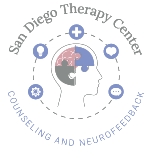Autism & Mental Health Issues
A study found that Young adults on the autism spectrum are more likely to also have been diagnosed with a psychiatric condition, such as depression, anxiety and attention deficit hyperactivity disorder (ADHD) than are typically developing people or those with other developmental disabilities. It is unclear how much of an effect biological factors have on this correlation, but environmental factors are easily seen. The world may not be fundamentally made for a person with autism. This plays a major role in the connection between their daily struggles and mental health issues. Diagnoses of mental health issues may come many years after one’s diagnosis of autism, or it may not come at all.

Lunsky performed the first study to compare young adults with autism to young adults with other developmental disabilities. By gathering data and relying on diagnostic codes, Lunsky found that those on the spectrum were more than five times more likely to have a psychiatric diagnosis than typically developing individuals and nearly twice as likely compared to others with developmental disabilities. It was also found that while 52 percent of young adults with autism had a psychiatric diagnosis, only 39 percent of those with other developmental disabilities did and 20 percent of typically developing people did. Therefore, having autism may lead to a higher risk of other mental health issues.
It is important to realize that youth with autism often suffer with symptoms of depression and anxiety as well. This can make the transitional process into young adulthood difficult, therefore requiring extra attention and repetitive modeling to make this transition as smooth as possible. Parents often try to help their child by completing troubling tasks for them, but in order to allow a child to grow, a parent must learn their boundaries. Early diagnosis can help with the transitional process for both the child and the parents. Although sometimes stuck in denial, accepting the diagnosis, and making sure it is the correct diagnosis, allows time to find the best resources.
If you are interested in more ways in which autism, mental health, and dysregulated states can affect your brain, read how Neurofeedback can help with symptoms of Autism, Anxiety, Depression and more. Contact us for more information on how Neurofeedback can help you and your family find the regulation you need to function at your best.
Reference: Haelle, Tara. “Many Young Adults With Autism Also Have Mental Health Issues.” NPR, NPR, 1 Oct. 2017.
~Written by Allison Parker and Tanya L. Hilber, PsyD



